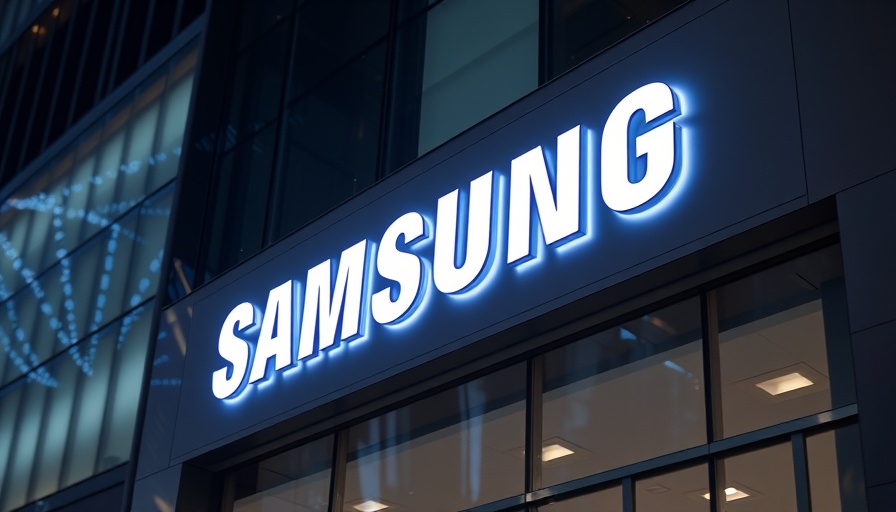
Samsung's Strategic Move: Acquiring FlaktGroup
In a significant development within the tech and investment landscapes, Samsung Electronics has announced its acquisition of FlaktGroup, a German manufacturer renowned for its air conditioning and heating systems, for a staggering 1.5 billion euros (approximately $1.68 billion). This deal represents Samsung's most substantial acquisition since its 2016 buyout of car electronics maker Harman International for $8 billion. Industry analysts are closely watching this acquisition as it could shape future trends in the tech sector.
The Rationale Behind the Acquisition
The acquisition of FlaktGroup is poised to enhance Samsung’s portfolio, especially in the growing field of smart building solutions. As sustainable investment and environmental considerations increasingly shape corporate strategies, Samsung's move to integrate FlaktGroup’s energy-efficient technology may bolster its efforts in these areas. This aligns with rising consumer demand for climate-responsive products in a world grappling with increasingly severe weather conditions.
Investment Implications for Stakeholders
For investors monitoring the stock market, this acquisition underscores the importance of strategic investments in technology firms. Samsung’s decision highlights well-established methods of portfolio diversification and value investing by tapping into a segment that enhances long-term growth prospects. It serves as a case study for contemporary investment strategies that include adopting ESG (Environmental, Social, and Governance) practices to attract a more environmentally conscious investor base.
Potential Impact on the Stock Market
This acquisition will likely play a crucial role in affecting stock market trends, particularly in technology and investment sectors. Companies that integrate sustainable practices into their businesses are often perceived more favorably, attracting investors who prioritize impact investing. As Samsung Electronics moves further into the sustainability realm, its stock may witness increased investor interest. Portfolio managers may want to consider shifts towards technology stocks that focus on sustainability, as this area could see substantial growth.
Insights on Future Trends in Technology Investment
What does this acquisition signal for the future of technology investing? First, we may see an uptick in mergers and acquisitions within the sustainability sector, as firms seek to bolster their offerings with eco-friendly solutions. Additionally, as climate-related regulations become more stringent globally, the demand for advanced heating and cooling technologies might skyrocket, boosting companies like FlaktGroup. Investors interested in tech stocks should look at those with strong ESG credentials as potential opportunities for future growth.
The Broader Economic Context
The past few years have demonstrated how technological advancements can impact economic stability. In times of market volatility, sectors like clean energy and sustainable technologies tend to remain robust due to persistent demand, making them attractive investments. Integrating these factors into investment strategies can help mitigate risks as economic indicators suggest an uncertain market period ahead.
Understanding Investment Strategies in Tech
Investors may find it beneficial to explore various avenues for developing a well-rounded portfolio, especially in tech. Strategies may include:
- Diversification: Spreading investments across technology sectors to manage risk effectively.
- Impact Investing: Prioritizing stocks from companies like Samsung that lead in sustainable practices.
- Growth vs. Value Investing: Balancing pursuits between companies with strong growth potential and established firms known for delivering consistent value.
As the Samsung-FlaktGroup acquisition shows, understanding these dynamics can be critical for investors seeking to navigate the complexity of modern financial markets.
Conclusion: Embrace Change in Investment Approaches
This acquisition not only highlights Samsung's commitment to expanding its technological ecosystem but also emphasizes the evolving landscape of investing. As we move forward, stakeholders must stay adaptable by continually assessing the impacts of major corporate decisions such as this one. By doing so, investors can better position themselves to leverage opportunities created by changing market dynamics.
 Add Row
Add Row  Add
Add 



Write A Comment